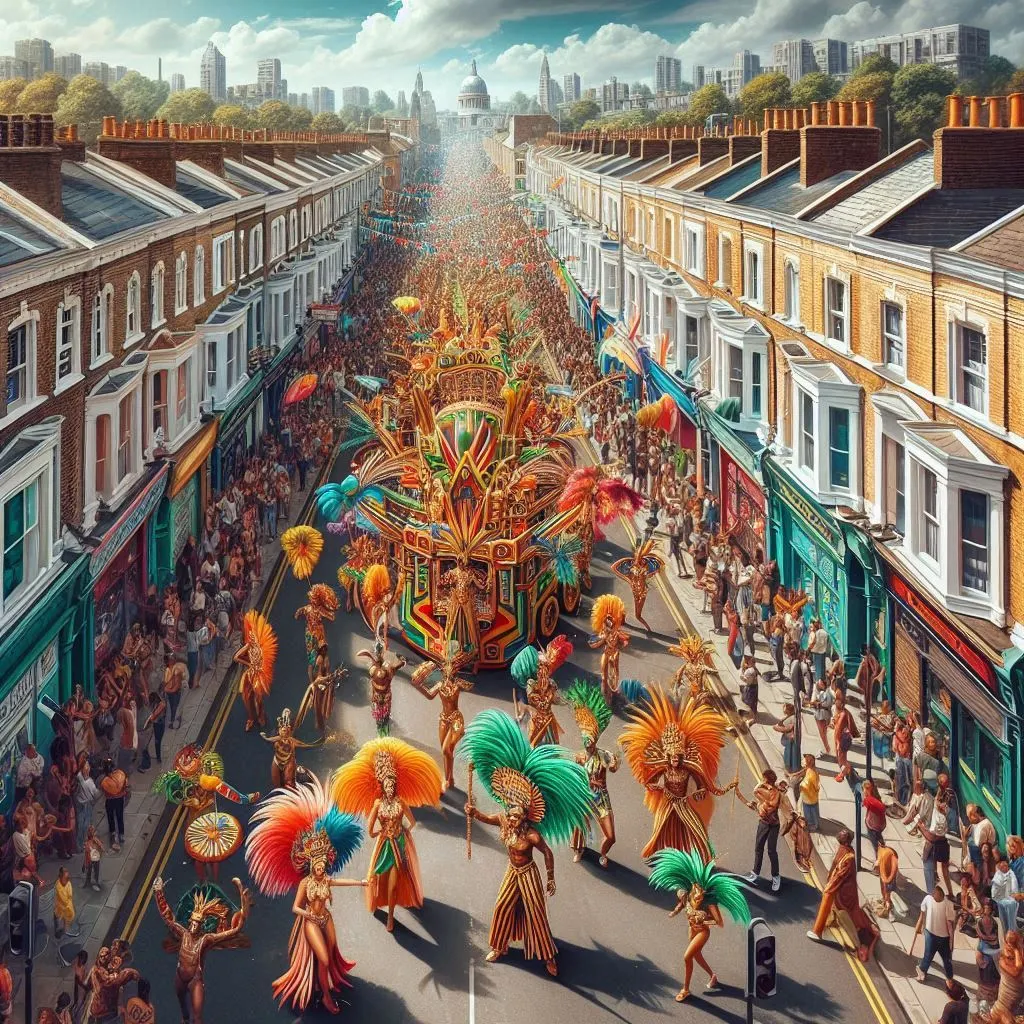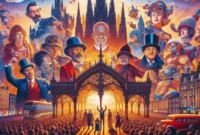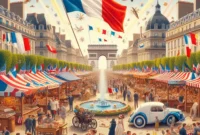The Notting Hill Carnival is one of London’s most iconic events, drawing millions of visitors each year to the streets of West London. Celebrated during the last weekend of August, this vibrant festival has become synonymous with Caribbean culture, music, and dance. However, beneath the surface of this “riot of color and sound” lies a mix of praise and controversy. This post explores the many facets of the Notting Hill Carnival, from its origins to the challenges it faces, and why it remains a polarizing event in England’s cultural landscape.
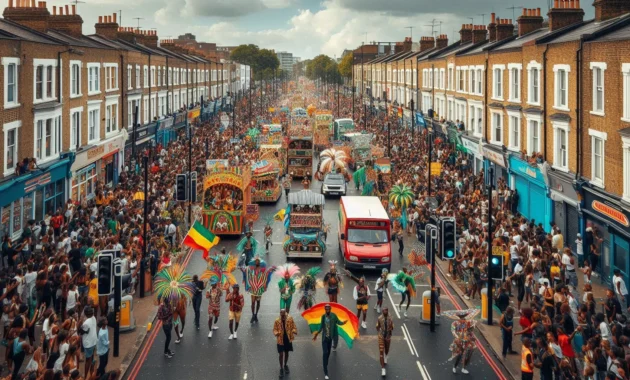
The Beginnings: A Controversial Birth
The origins of the Notting Hill Carnival are rooted in the struggles and resilience of London’s Caribbean community. The festival was first held in 1966, a time when racial tensions were high in the UK. It was initially conceived as a way to celebrate Caribbean culture and promote unity. However, the event was met with resistance from local authorities and residents who viewed it as a disturbance. This clash set the stage for the carnival’s controversial reputation, a label that has stuck with it ever since.
The Explosion of Culture: A Positive Celebration or Chaos?
Today, the Notting Hill Carnival is celebrated as a “festival of diversity” that showcases the best of Caribbean music, food, and art. The streets are filled with the infectious rhythms of reggae, calypso, and soca, while the air is thick with the aroma of jerk chicken and other Caribbean delicacies. This sensory overload is a testament to the vibrant culture that the carnival represents. However, not everyone sees it in a positive light. Some critics argue that the event has become a “chaotic” affair, characterized by overcrowding, noise, and occasional violence. Despite these criticisms, the carnival continues to be a major attraction, drawing over two million attendees each year.
The Cost of Celebration: Economic Boom or Burden?
Economically, the Notting Hill Carnival is a double-edged sword. On one hand, it brings a significant financial boost to the local economy, with estimates suggesting that it contributes over £100 million annually. The influx of tourists generates business for local vendors, hotels, and restaurants, providing a vital source of income for many. On the other hand, the cost of policing and cleaning up after the event is substantial. Critics argue that the public funds used to manage the carnival could be better spent elsewhere, particularly in a city facing numerous social challenges. This financial dichotomy adds another layer to the complex narrative surrounding the event.
Safety Concerns: A Safe Space or a Breeding Ground for Crime?
Safety is another contentious issue that often overshadows the Notting Hill Carnival. While the majority of attendees come to enjoy the festivities, the event has occasionally been marred by incidents of violence and petty crime. The Metropolitan Police deploy thousands of officers to ensure public safety, yet concerns persist. Some residents feel that the carnival has become a “breeding ground for crime,” a claim that the organizers vehemently deny. They argue that the overwhelming majority of attendees are law-abiding citizens and that the carnival should not be judged by the actions of a few. Nevertheless, the issue of safety remains a critical talking point every year.
The Future of Notting Hill Carnival: A Bright Future or Uncertain Path?
As the Notting Hill Carnival approaches its sixth decade, questions about its future are increasingly pertinent. The event has undoubtedly become a cultural institution, a “symbol of resilience” for the Caribbean community in the UK. Yet, it faces numerous challenges, from funding issues to public perception. Some fear that the carnival may lose its authenticity as it becomes more commercialized, while others believe it will continue to evolve and adapt. What remains clear is that the Notting Hill Carnival is more than just a street party; it is a reflection of London’s diverse society, with all its complexities and contradictions.
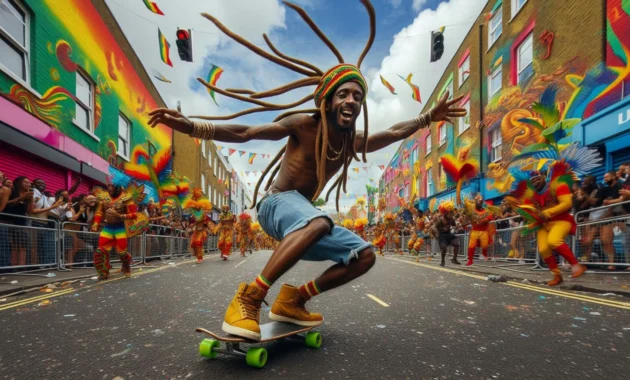
Conclusion: A Carnival of Contrasts
The Notting Hill Carnival is a paradoxical event that elicits both admiration and criticism. It is a “riot of color and sound” that brings joy to many but also poses challenges for others. Whether viewed as a celebration of culture or a source of controversy, the carnival is undeniably a significant part of England’s cultural tapestry. As it continues to evolve, it will be fascinating to see how this iconic event navigates the complexities of modern society.
